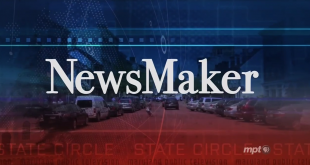Morgan State University and Community Partners Hold their Inaugural Conference
“Many Voices, One Goal: Communities Partnering against Tobacco.”
Approximately 200 tobacco cessation researchers, students, and community leaders attended the first annual CEASE Conference “Many Voices, One Goal: Communities Partnering against Tobacco.” This one-day conference on tobacco cessation was held on the MSU campus on Saturday, November 8, to celebrate more than a decade-long partnership between MSU and communities in Baltimore City. Featured speakers included: MSU President David Wilson; Congressman John Sarbanes (3rd District, Maryland); Baltimore City Health Commissioner Dr. Jacquelyn Duval-Harvey; Director of the Bureau of Cancer and Chronic Disease of the Maryland Department of Health and Mental Hygiene, Dr. Donald Shell; Region III Minority Health Coordinator from the Office of Minority Health, Captain Elijah Martin; Deputy Director of the Maryland Citizens’ Health Initiative, Matthew Celentano; Jack Henninfield, Phillip Gardiner, Lawerence Carter, and Bishop Douglas Miles from the Koinonia Baptist Church.
In this one-day conference, 25 scientists from across the country (including Baltimore, Philadelphia, Chicago and San Francisco) and from Mexico City presented their research either as oral or poster presentations. In addition, youth groups from the Connexions School for Art and the YES (Youth Encouraging Success) Team provided health-related performances.
The CEASE initiative (Communities Engaged in Advocating for Smoke-free Environments) is funded by the National Institute on Minority Health and Health Disparities and housed in the Prevention Sciences Research Center at MSU. Members of the conference Planning Committee represented organizations including Fusion Partnerships, the Baltimore City Health Department, Baltimore City Public Schools, West Baltimore CARE, the Center for Tobacco Prevention & Control of the Maryland Department of Health & Mental Hygiene, the University of Maryland Carey Law School’s Legal Resource Center for Public Health Policy, the National Institute on Drug Abuse, and MSU’s School of Community Health and Policy.
 Morgan State University Newsroom Morgan State University
Morgan State University Newsroom Morgan State University




